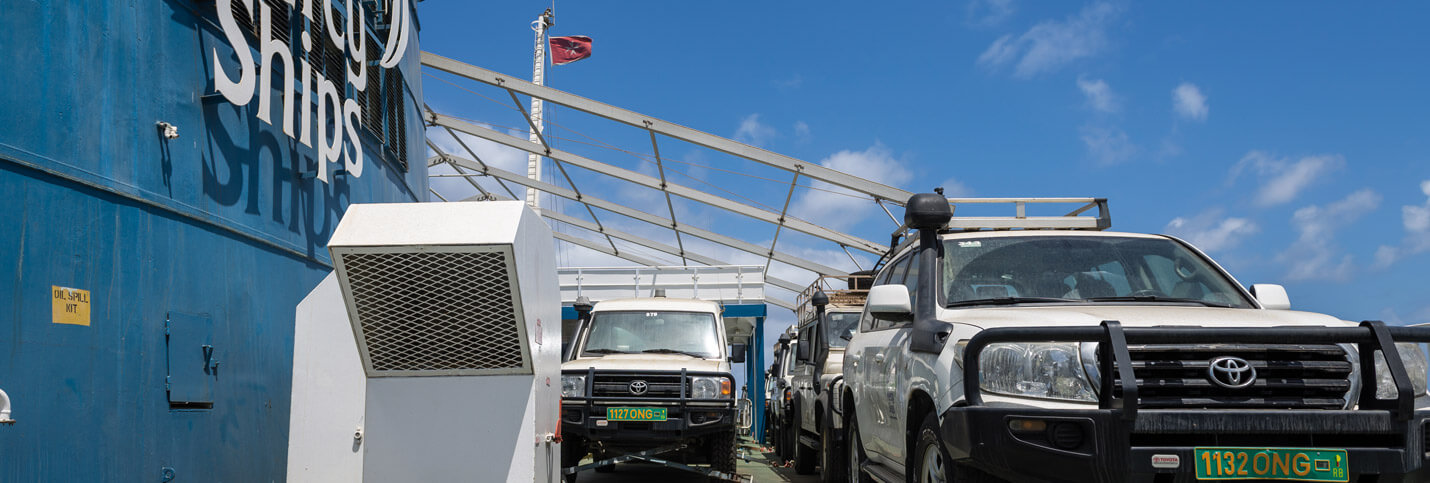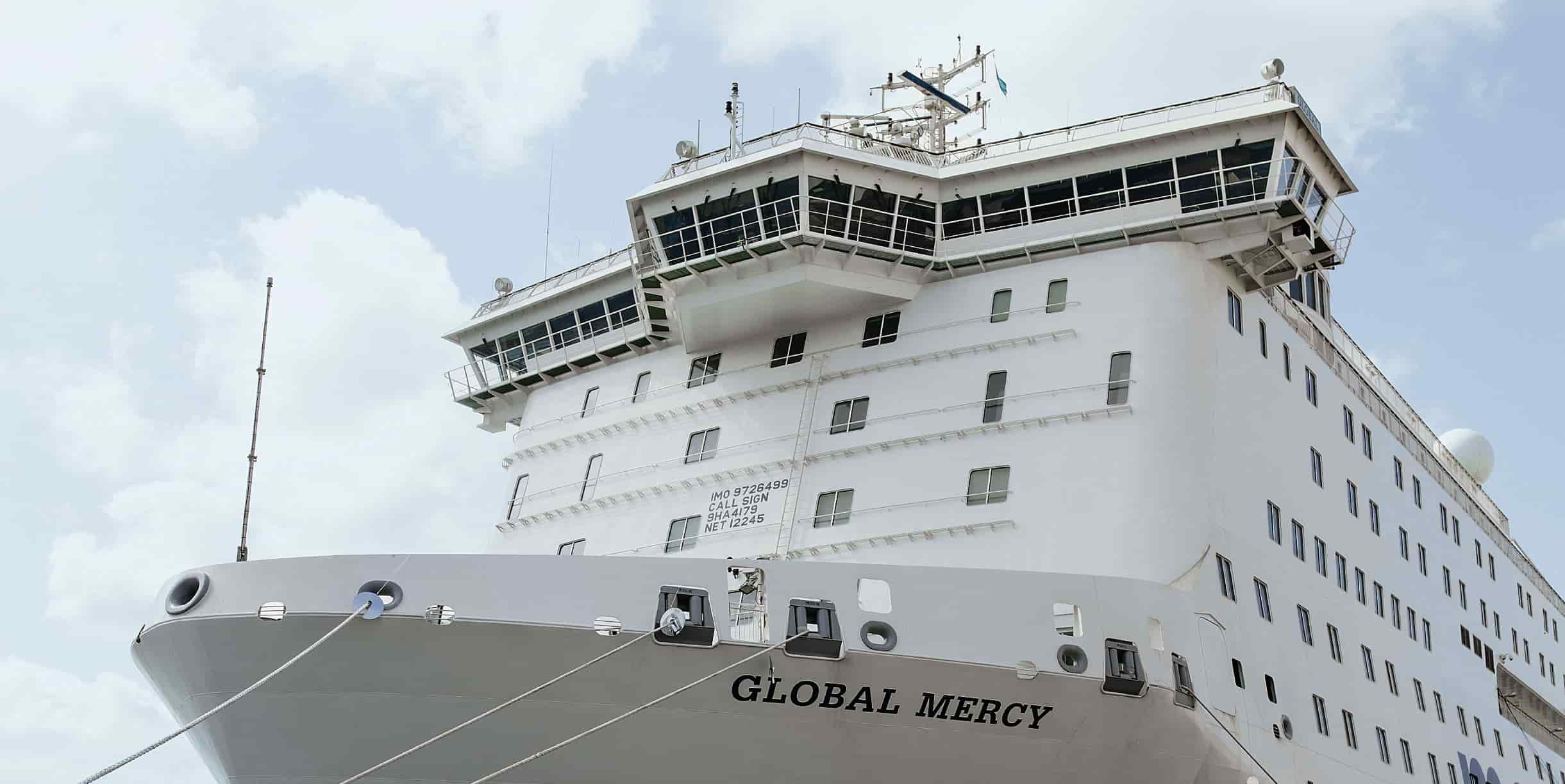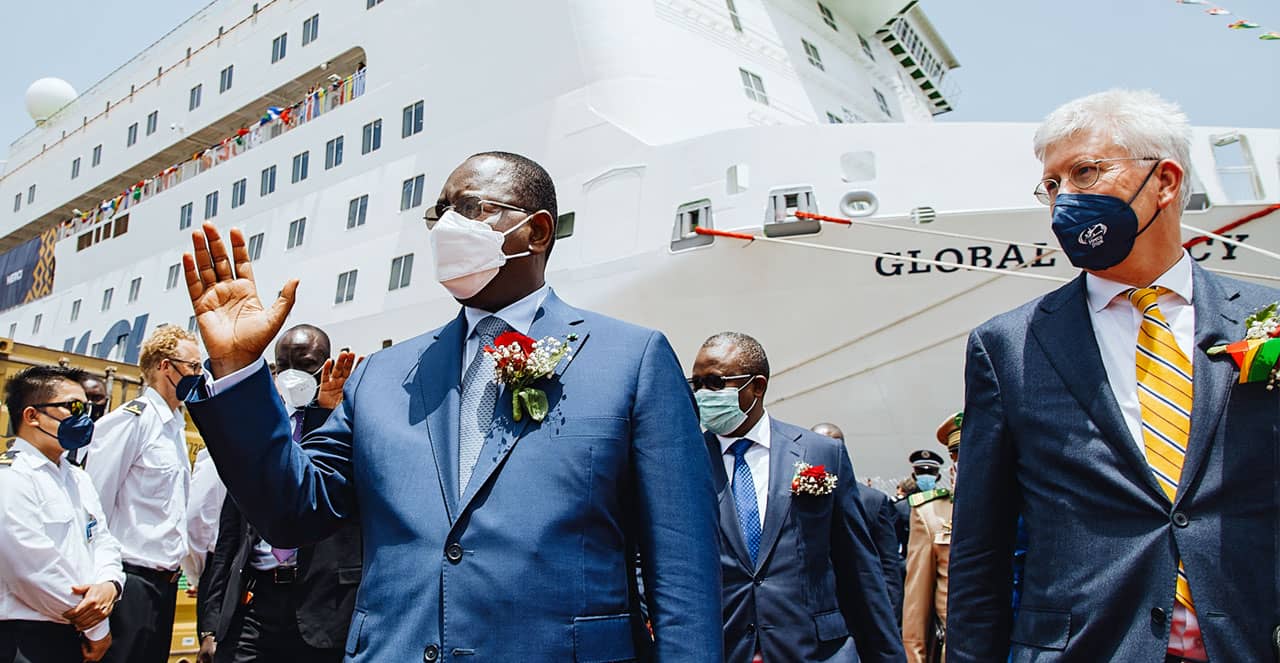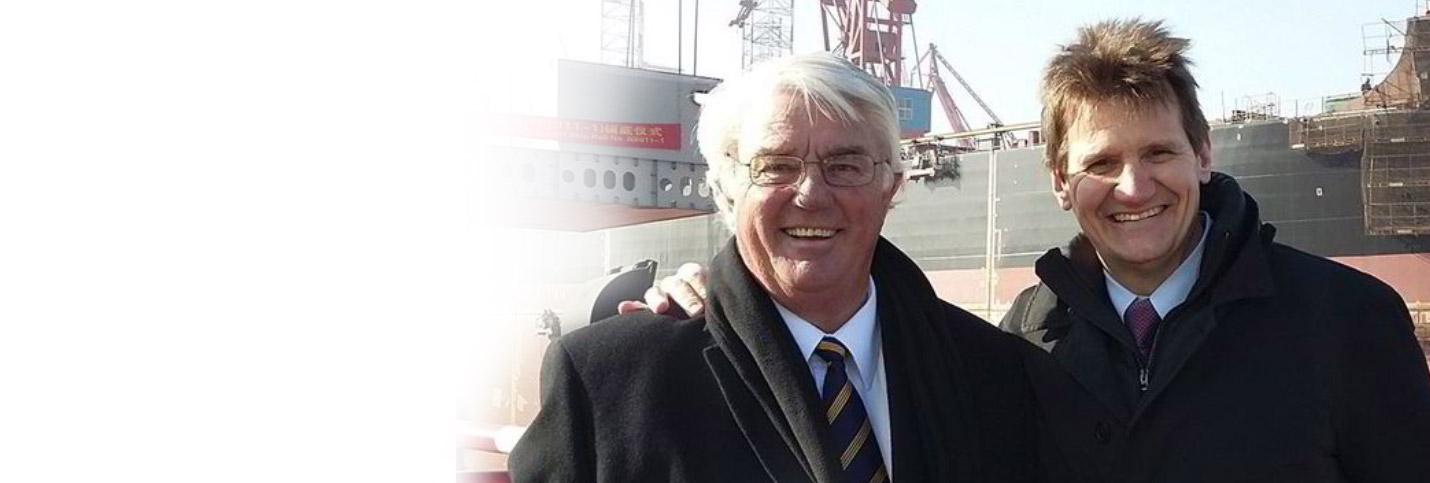Strengthening Surgical Care in Africa:
Several Heads of State sign the "Dakar Declaration" aboard the brand new Global Mercy™
Representatives from Cameroon, Union of Comoros, Republic of Congo (Brazzaville), Gambia, Guinea-Bissau and Senegal gathered on board the new ship of the NGO Mercy Ships. They endorsed the Dakar Declaration, a strategic roadmap to improve surgical care for African nations by 2030, where an estimated 93% of sub-Saharan Africa still lacks access to safe surgery.
DAKAR, Senegal / LAUSANNE, Switzerland – May 31, 2022 – On May 30, several African heads of state signed the Dakar Declaration, a roadmap intended to accelerate access to surgical, obstetric and anesthetic care by 2030 They had gathered on board the new hospital ship of Mercy Ships, an international humanitarian organization created in Switzerland in 1978.
His Excellency President Macky Sall inaugurated the largest civilian hospital ship in the world, and pledged to accelerate access to surgical, obstetrical and anesthetic care in Africa. The ceremonies were held as part of Mercy Ships’ celebration of 30 years of service to the African continent. The President of Senegal, the humanitarian organization and their partners in Africa have used this unprecedented opportunity to develop a strategic effort to strengthen surgical care across the continent.
The Senegalese President and Chairperson of the African Union greeted the Heads of State present by declaring:
“We, Heads of State present, adopted the Dakar Declaration, the result of in-depth work by our ministers and experts on access to surgical, obstetrical and anesthetic care. I undertake, in my capacity as current Chairman of the African Union, to bring this Dakar Declaration to the Conference of African Heads of State and Government.”
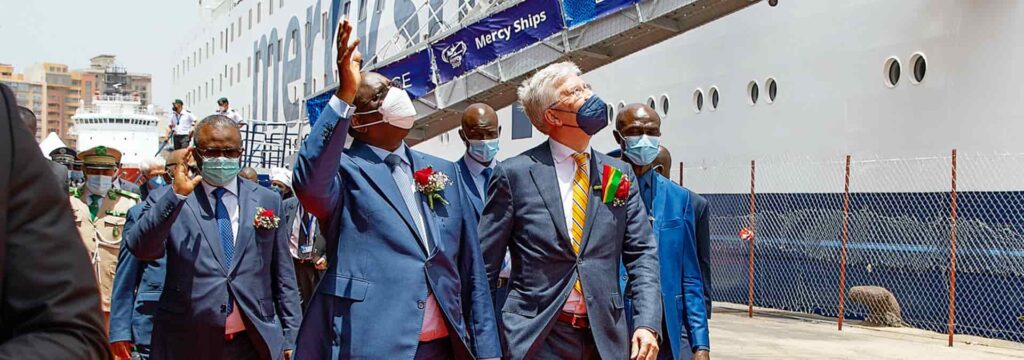
Assessment of health systems
The Dakar Declaration is a landmark agreement that follows substantive discussions from the International Symposium held in Senegal from May 4-6, 2022. Experts and health ministers from 29 African countries came together to mark their commitment to improving access to surgical, obstetrical and anesthetic care. The Symposium resulted in a new initiative to chart a clear path towards safer and wider access to surgical care in Africa by 2030. a roadmap to scale up investments in strengthening surgical, midwifery, anesthesia and nursing care in Africa, in accordance with the Sustainable Development Goals (SDGs). This Dakar Declaration draft was prepared with the support of Mercy Ships, endorsed by Ministers of Health and adopted on May 30 by visiting African Heads of State.
The members of the Symposium shared their knowledge on the situation of surgical care in their respective countries. They also candidly addressed gaps and challenges in their national plans for surgery, obstetrics and anesthesia in order to develop new implementation and capacity-building strategies.
A basic assessment had been carried out beforehand by each country and discussed by a Scientific Committee. For the first time in Africa, a study of such magnitude has been carried out in the 47 nations of the WHO Africa region. The survey provides essential information on African health systems from the perspective of district hospitals, particularly in the area of surgery. The World Health Organization will use the results of this study to complete the analysis of the current situation of clinical and hospital services, as well as to develop and finalize the regional strategy for strengthening clinical and hospital services in Africa.
Access to surgical care, an unrecognized challenge
Two-thirds of the world’s population, some 5 billion people, do not have sufficient access to safe, affordable and timely surgical operations. This is the finding of a study conducted by the medical journal The Lancet. This study, Global Surgery 2030 , shows that in West and sub-Saharan Africa, 93% of people are deprived of surgical care. There are on average two doctors per 10,000 inhabitants, compared to 32 in Europe, according to the World Health Organization. Life expectancy there is only 52 years, compared to 74 in Europe. The recent drama in Senegal reflects the challenges facing African nations in terms of safe medical care. An accident at a hospital in Senegal on May 25 claimed the lives of 11 newborn babies. President Macky Sall has decreed three days of national mourning in memory of the victims of the tragedy that occurred at the Mame Abdou Aziz hospital in Tivaouane.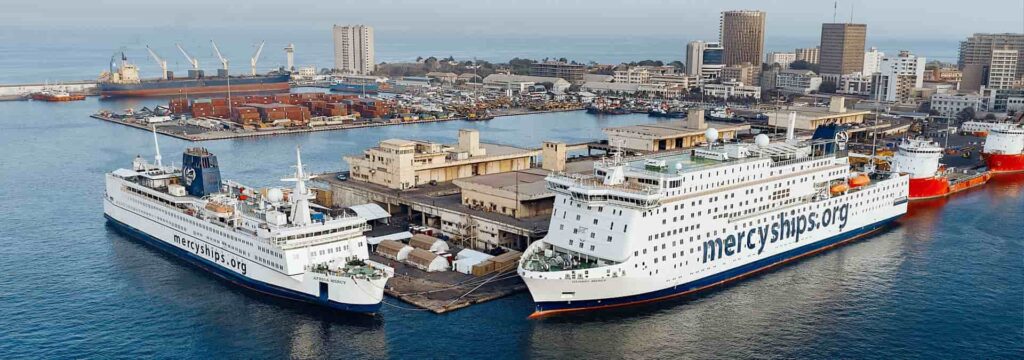
The NGO Mercy Ships, partner of African nations
The President of the Union of Comoros, Azali Assoumani, said:
“My country is fully committed to the vision of improving access to surgical care together. The time is not for speeches, but for actions. Figures and facts show that our health is sick. All States must assume their responsibility, so that the support of Mercy Ships can give more efficiency to the health of our populations. When we are a country, we fall into the trap of growth, unemployment, work, and we forget that nothing can be done without health. The observation that has been made should challenge us. And the population must accept that the priority is social, health and education. At the African level, we will ensure that Health is a priority. I pay tribute to Senegal and to the members of Mercy Ships for their commitment to this mission.”
Heads of State gathered aboard Mercy Ships’ new ship. The Global Mercy , which is 174 meters long, 28.6 meters wide and can accommodate 200 patients simultaneously, has six operating rooms, a laboratory, general outpatient clinics, a dental and an eye clinic. The hospital decks cover a total area of 7,000 square meters and also house state-of-the-art training facilities.
Funded entirely by designated private and institutional donations as well as legacies from around the world, the Global Mercy is expected to serve surgical patients for the next 50+ years. Thousands of lives will be transformed. When fully operational and docked, the ship will accommodate up to 950 people, including crew members and volunteers from around the world. But the ship will also serve as a place for continuing education and knowledge sharing among healthcare professionals from across the continent.
A recording of the ship’s inauguration ceremony and speeches by several heads of state are available here:
Resources available to the media
High definition photos:
Meeting of Heads of State, signing of the Declaration and inauguration of the Global Mercy
